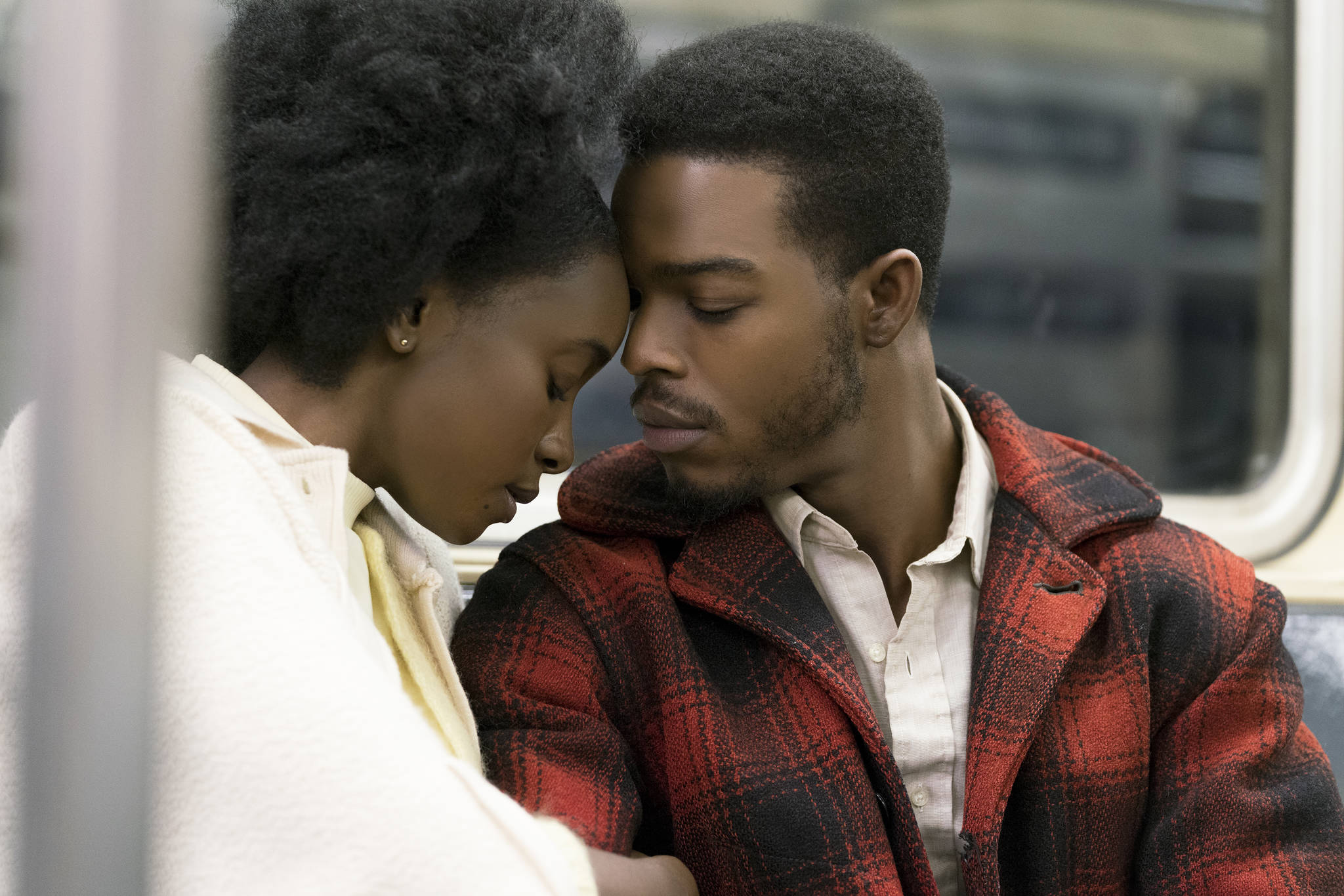When you win the Best Picture Oscar, you’ve got a choice: play it safe or take a chance. Moonlight director Barry Jenkins obviously decided to gamble.
Jenkins’ follow-up to his intense 2016 prize-winner is If Beale Street Could Talk, a complex, offbeat adaptation of James Baldwin’s 1974 novel. The story revolves around Tish (wondrous newcomer KiKi Layne) and Fonny (Stephan James), two lovers who’ve known each other since childhood. As the film opens, Tish finds out she’s pregnant while Fonny languishes in prison—two situations we’ll eventually learn more about as the movie skips around in time.
The sequences where Tish reveals the pregnancy to her family (and then, more disastrously, to Fonny’s family), are among the film’s high points. There’s delight in the way Tish’s mom (Regina King, who’s earned Best Supporting Actress honors for the role from the New York and L.A. critics groups) ceremoniously brings out the good bottle of brandy to toast the news, and in the reaction of Tish’s warm-hearted dad (Colman Domingo, from Fear of the Walking Dead).
Race takes a central role. Be it in the young couple’s attempt to rent a loft apartment in New York or in their visit with an old friend (Brian Tyree Henry, from Widows) newly out of prison, the reality of discrimination always lingers in the air. Jenkins keeps the story in the 1970s. But this doesn’t put social commentary in the past. If anything, the time period underlines how little race relations have advanced in 40 years.
The film is a riot of ‘70s clothes and spectacular colors. After seeing too many movies where color has been deliberately drained from the screen (it’s supposed to be artistically gritty or something), what a pleasure it is to watch a film that’s just drunk on lime greens and candy-apple reds, as though conveying the rich energy bursting out of these modestly-scaled lives.
Jenkins can stage a scene like nobody’s business. A quiet session of lovemaking is accompanied by three distinct soundtracks: an orchestral score, which drops away in favor of the sound of rain on the roof, which then gets replaced by the low-tech groove of the hero’s jazz LP. It’s a brilliant way of charting the shifting feelings of an anxious moment. If Jenkins is great at compiling the texture of a scene, he doesn’t always fit the scenes together in a propulsive way. The episodic nature of Moonlight disguised this, but it’s more of a problem with Beale Street, which has a tendency to meander; we meet characters who appear to be meant for some significance, but—nope, we never see them again. If Beale Street Could Talk is all mood—then despite the film’s uneven effects, that mood is convincing: thoughtful, sad, and more than a little angry.
If Beale Street Could Talk
Now Playing | Rated R






